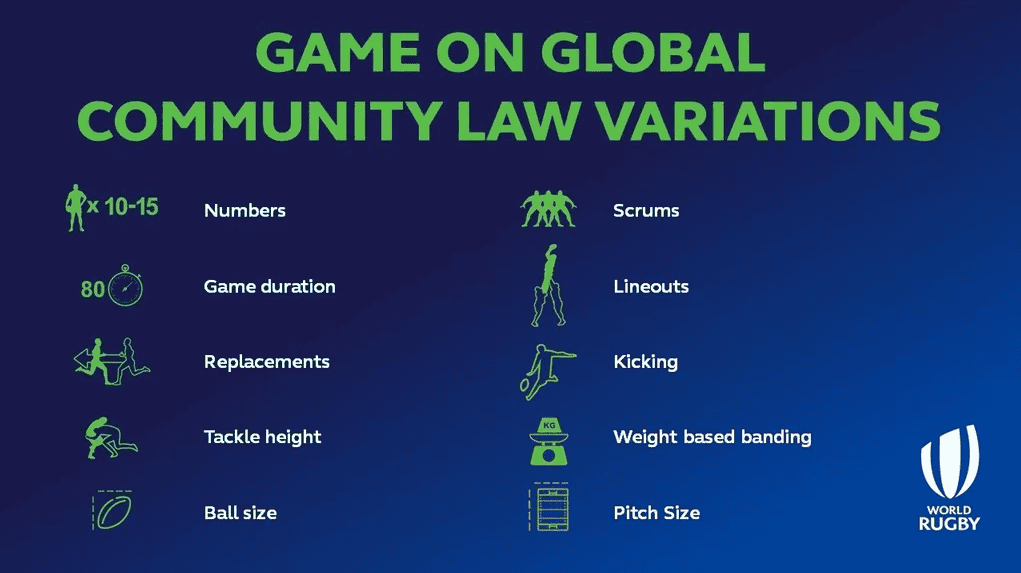
RFU Announces Fixtures For New Adult Male Competition Structure
The 2022/2023 season will see the biggest change in 30 years to how community rugby is structured in the adult men’s game in England. The new structure is intended to improve player retention and attract new players to an area of the game where research has indicated players are choosing to play less regularly. Fixtures announced today outline how teams will line-up in the new framework which sees national, regional and counties leagues replacing levels 3-11 in the men’s game. A new cup competition will round-off the season, adding to the excitement of something else to play for.
Societal changes have resulted in participation becoming less frequent across a number of team sports. This has been accentuated by the pandemic as players developed alternative commitments at weekends when unable to play matches. The new framework aims to adapt to modern behaviours and respond to player and club feedback to develop a league structure that better suits players’ lifestyles of today.
To create the blueprint for the new structure, consultation has taken place since December 2019 with grassroots players, directors of rugby, coaches, club administrators and RFU Council Members about how a structure might look and work for them. Lengthy travel to matches and the intensity of the league season were noted as key barriers to participation for many players.
To address these challenges, in April 2021 the RFU Council approved recommendations from the Future Competition Structure Group for a new competition structure. The revamped structure aims to reboot and re-energise this area of the community game, reducing travel, bringing back local derbies and creating new ones, while placing a key focus on club sustainability and making the quality of player experience as high as possible. The new structure is organised according to four core principles:
- Ensuring a high-quality player experience
- Putting player welfare and needs at the forefront of decisions
- Minimising travel
- Supporting club sustainability
In what has been termed ‘flattening the pyramid,’ the number of teams in each league has decreased, thereby reducing the number of fixtures, while the number of leagues has increased. The effect of this allows for more regionalisation and localisation, with an intention to reduce the travel burden for players and clubs. As a result of changes, the majority of teams that were previously playing at old levels 4-6 will see average trip mileage reduced. The travel benefits at the lower end of the structure will be less pronounced as they were already very localised. Break weekends have also been layered into league rugby during the season.
Following the changes in structure, the 2022/23 season will see an additional 145 teams taking part in the England Club Championship (ECC) including the return to RFU leagues of 45 teams from Cheshire and Lancashire. The increased number of teams also includes the addition of lower XV teams up to Counties 1 who met entry criteria, approved by RFU Council in November 2021, to join the English Club Championship. The new offering has seen the number of Constituent Bodies who have lower XVs playing in the ECC increase from 9 to 17.
Stephen Pearson, RFU Council Member and Future Competition Structure (FCS) Group chair, said: “We are excited by the potential of these changes which put player welfare and player experience at the centre of decision-making, making sure travel requirements are appropriate and that clubs continue to be sustainable.
“In general, rugby is in good shape, with strong participation at minis and junior level, which has bounced back well post Covid. That is an important part of clubs’ sustainability. We’re also seeing huge growth in the women’s and girls’ game year-on-year, which will be driven forward again by this autumn’s RWC and the RWC 2025 in England.
“However, we need to recognise there are challenges, particularly in the adult men’s competition. We’ve seen a trend towards a greater number of players being required to complete a first team fixture list, which sucks players up from the lower teams and impacts on the number of sides a club can put out. We’ve sought to declutter the season, so it’s more accessible to a player to play in short batches, for example four games of league rugby, followed by a break weekend.
“By putting the new, optional cup competition at the end of the season, teams will still have something to play for. This coupled with the potential to play in a Community Game Finals day at a prestigious venue is a dream of many players.
“Alongside those playing and coaching the game, we have worked closely with Council Members representing the community game and CBs and Organising Committees who have a detailed understanding of their local rugby environments. Changes of this size and significance cannot be made in isolation from the centre. It has been hugely important to listen to and respect local knowledge while creating the blueprint for the new structure. It has been a long process and this collaboration has been appreciated by all involved. We thank everyone who has shared their time and expertise to create what we believe is a safe, fair, inclusive league structure that will attract more players to the men’s game.
“We acknowledge there will be some anomalies when it comes to travel in the first season, but this will settle down over time and we will look to work with those clubs and see how they can be supported. The majority however will see reduced travel.
“Recommendations include for there be a rapid review of specific aspects of the competitions. Changes of this magnitude will inevitably take time to settle in. We will be monitoring the effects and formally reviewing the outcomes within a three-year time frame, while local changes are always possible within the normal seasonal competitions management process.”
Community Game Board (CGB) chair, David Roberts, added: “The review was commissioned by the CGB pre-Covid because we recognised the need to evolve the competition structure to ensure the adult men’s game at community level remains relevant and popular. If anything, Covid has re-emphasised the need for these changes, respecting the core principles which have been put in place. The fundamental aim is to create a positive structure that works for players of today and the future, to increase playing numbers.”



